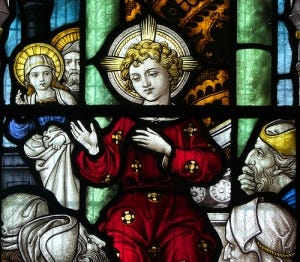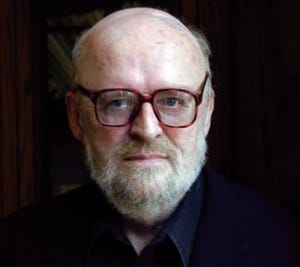Reflection on My First Year of Teaching Theology*
Now that I’ve posted the final grades for TH02401, my first year of teaching Catholic theology to undergrads has come to an end. While I have been preparing and teaching this course, as well as applying for jobs to teach in the future, I have also been reflecting on what I am doing when I am teaching theology. While these reflections are far from complete, I thought I might offer some of what has been on my mind this past year.
Some background: my course was a year-long course, meaning I largely had the same students both semesters. This time frame allowed me to cover important material in greater depth than would be possible in a single-semester course. It has also meant that my students have endured me for an entire year, without the natural break at semester that would normally introduce them to a new teacher and a new way of doing things. My students are predominantly freshman and predominantly from Catholic high schools, meaning they have some background but are new to the world of collegiate level education.
The underlying theme that I have wrestled with throughout this year has to do with the dual tensions of the place of theology in the academy and the role of the theology teacher. Regarding the former, I have sometimes wondered whether my students consider theology to be a “relevant” field. Does it make a difference in their lives? Does it make a difference in society? Is it reasonable to make theology a required part of their core curriculum? In one of my favorite quotes from The Analogical Imagination, David Tracy laments that
Indeed, religion suffers even greater losses than art by being the single subject about which many intellectuals can feel free to be ignorant. Often abetted by the churches, they need not study religion, for ‘everybody’ already knows what religion is: It is a private consumer product that some people seem to need. Its former social role was poisonous. Its present privatization is harmless enough to wish it well from a civilized distance. Religion seems to be the sort of thing one likes ‘if that is the sort of thing one likes.1
My students’ frequent use of “I feel” “I believe” and “in my opinion” are valid so far as they go, but they tend to operate on the assumption that theology is only a collection of baseless opinions from which we can pick and choose what makes us feel whatever way we want to feel. Genuine differences are chalked up to diverse perspectives, but then those differences are left to languish because of disinterest in probing deeper. My greatest successes this year occurred with those students who learned to see such alternative views as not merely alternative opinions, but as reasonable, well-thought out arguments that resist the dismissal that comes with lazy forms of tolerance. I suspect that one of the subtle ways that we marginalize others is by marginalizing their ideas as “opinions” that demand no more of us than passing acknowledgement.
Over the past year I tried to convince my students of two things: (1) that theology is basically concerned with questions of meaning and purpose in life and (2) that Catholicism is a valuable conversation partner in that (and, for those in the class who identify as Catholic, a privileged conversation partner). The first could come across as syncretist and the second as not Catholic enough. Yet these two points have been my negotiation strategy for involving students with a wide range of responses to Catholicism, including curiosity, apathy, rejection, devotion, cultural appropriation, conversion, and boredom.
This leads to the second tension noted above, which is my role as a teacher of theology. Teaching theology is not like teaching history, sociology, or philosophy, but it seems to include bits and pieces of all these (and more). It’s not like teaching a catechism class or leading an RCIA group, in which one might introduce prospective members of the community into the mysteries of the faith, but we tend to do that too (many of my students know nothing of scripture or tradition, so I have to introduce that to them). It’s also not like preaching, but sometimes I get on a roll and the teaching begins to feel like an exhortation.
I’m not sure what to do with these tensions, and I suspect I will continue to wrestle with them as I grow as a teacher. I think these tensions are mainly problems for those of us doing theology because we commit ourselves to dual vocations to the academy and the church. Working within a Catholic university, the line between these vocations is further blurred. I doubt my colleagues in chemistry worry about justifying the relevance of their field to their students or that they are concerned with a type of formation beyond the academic or professional kind. Perhaps what it means to teach theology is a bit fuzzier because of these two publics and their attendant commitments.
I conclude this reflection with questions rather than answers. Do other teachers of theology struggle with these tensions? Do you teachers in other fields experience something analogous?
*Which, despite the picture above, went very differently from Jesus’ first go around
David Tracy, The Analogical Imagination, 13





